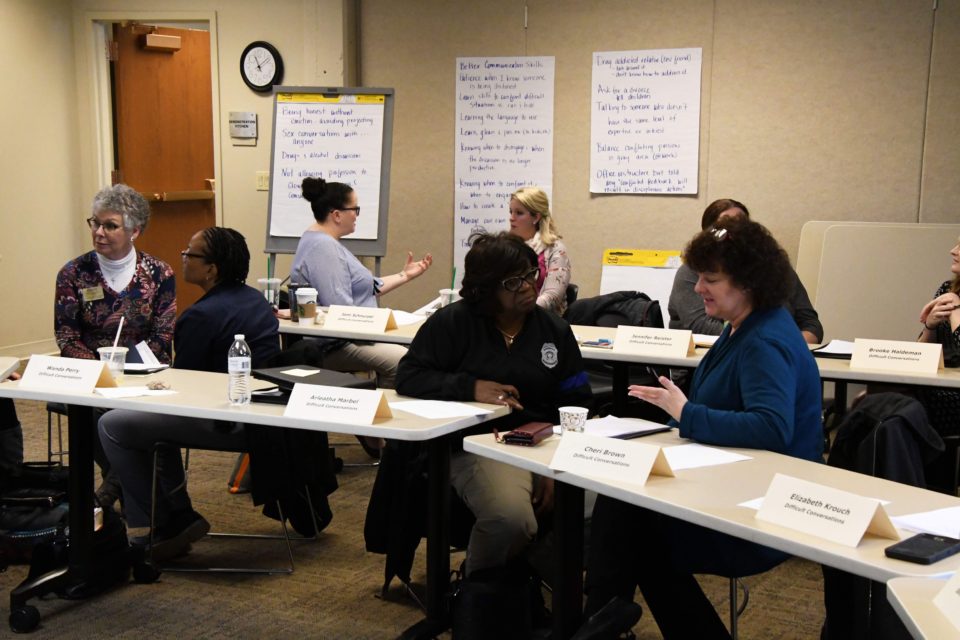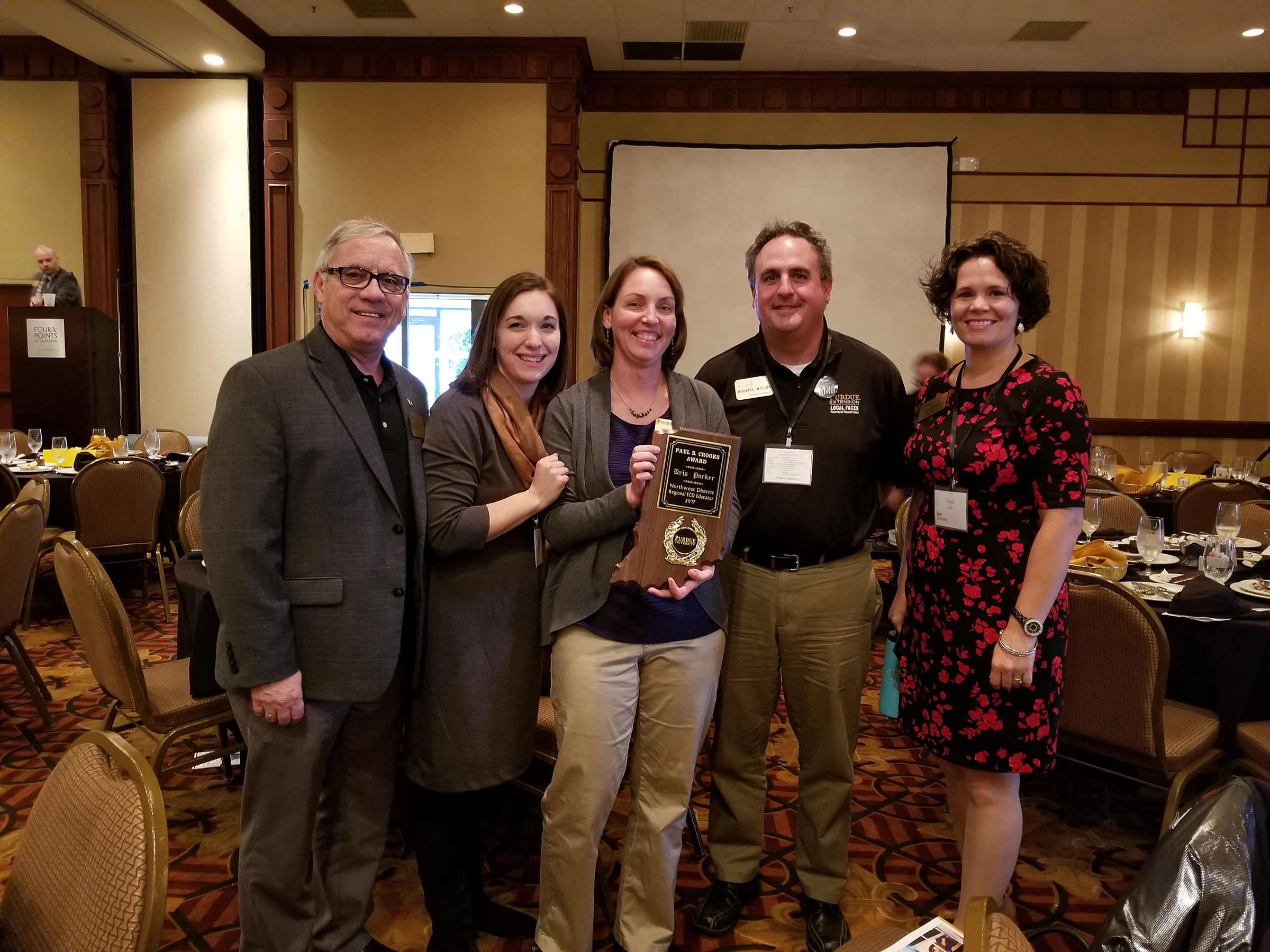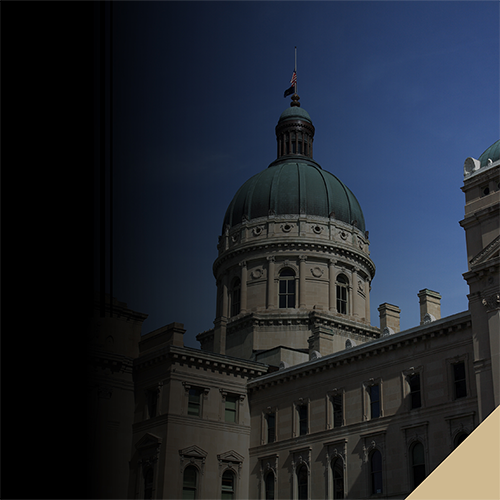Conversations move life forward. They can also stop things from moving forward. Relationships begin and end on conversations. Teams are formed and broken apart. Goals are made, expectations laid out, visions happen, all around conversations. When we face difficult conversations, we can do one of three things: we can avoid them, we can face them and handle them poorly, or we can face them and handle them well.
Thirteen participants completed the all-day difficult conversation class offered by Purdue Extension to master strategies for handling difficult conversations well. The class attracted participants from Indianapolis Metropolitan Police Department, Indianapolis Parks and Recreation, Marion County Probation Department, Marion County Forensic Services Agency, The Julian Center and Purdue Extension Educators.
During the workshop, participants learned to diagnose a difficult conversation by evaluating the “What happened?” conversation and then sort out contribution, intent and impact. They also learned about their “Style under stress” and gained healthy dialogue skills that get results and improves relationships. Through deliberate practice with a learning partner, participants learned how to prepare for a difficult conversation, what to do during and after the conversation and how to follow up.
After the workshop, participants indicated their ability to challenge strongly held beliefs, regardless of the level of position of the other person, had increased. Additionally, participants felt they gained tools they needed to raise serious concerns with the performance and behavior of others in productive ways. Not only that, but participants felt they now had the skills to be completely candid with their supervisors about issues and concerns.
Here is a sample of comments from participants when asked, what is the best value you got from today’s workshop?
• This class has been very helpful. In difficult situations, I tend to be right and the other wrong. Not all the time but I have learned practical skills to explore the stories of others and refrain from attacking or defending my story. What I have learned is to make it safe for others to tell their story and appreciate how it makes sense to them and then find a way to collaborate and improve our relationship. I will certainly recommend this class to my friends and colleagues.
• Thank you so much of offering this introductory training/seminar on Difficult Conversation. It was a high-paced day, but I can walk away with several new skills and a book to continue learning more. I am interested in more programs like this one! Wonderful Job!
• My best value is how to assess the conversation and see how it is progressing continually. If it has “derailed” then I now have tools to change the tone or content of the conversation. Also, more confident in saying “Maybe we can come back and re-assess the situation after a break” when things get heated. This was SO GOOD!
A two-day Crucial Conversation: Tools for talking when stakes are high instructor training is July 25-26 in Indianapolis. Crucial Conversations instructor training teaches skills for creating alignment and agreement by fostering open dialogue around high-stakes emotional and risky topics. By learning how to speak and be heard (and encourage others to do the same) you will surface the best ideas, make the highest-quality decisions, and act on your decisions with unity and commitment. Crucial Conversations teaches how to speak persuasively, not abrasively. The training fosters teamwork and better decision making and provides deliberate practice to build acceptance and resolve individual and group disagreements.
Contact George Okantey, Extension Community Development educator, if you want to learn more at okantey@purdue.edu or 317-275-9263.




